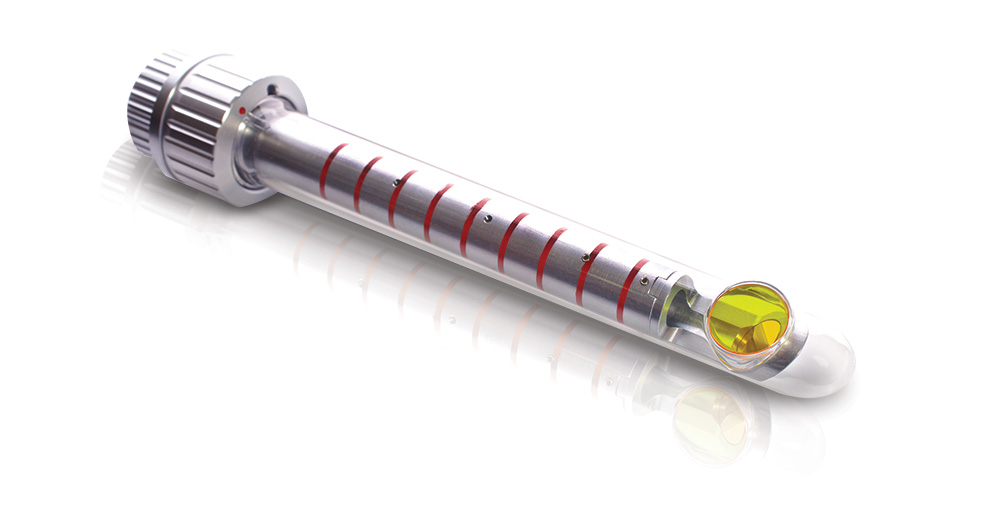The female body undergoes changes throughout life. Over time, the skin loses elasticity. After childbirth, symptoms such as involuntary urine leakage, vaginal laxity and dryness, reduced sexual sensation, or recurrent vaginal infections may occur. FemiLift offers a modern, minimally invasive, and outpatient solution for many of these issues using CO₂ laser technology.

FemiLift is a minimally invasive CO₂ laser specifically designed for treating the intimate area. It is used for:
• Vaginal tightening: Improving the firmness and elasticity of vaginal tissue.
• Stress incontinence: Reducing involuntary urine leakage during physical activity, coughing, or sneezing.
• Vaginal dryness: Stimulating collagen production to improve natural lubrication.
• Pain during intercourse: Enhancing vaginal elasticity and moisture for a more comfortable intimate experience.
FemiLift is a vaginal CO₂ laser inserted into the vagina similarly to a transvaginal ultrasound probe. The laser emits a grid of micro-injuries in a circular pattern on the vaginal lining.
These micro-injuries result in:
• Collagen production: Strengthening the tissue structure and improving elasticity.
• Increased blood flow: Promoting moisture and firmness by stimulating new blood vessel growth.
These processes improve the elasticity, hydration, and overall health of the vaginal lining.
FemiLift is a versatile treatment for women experiencing:
• Mild stress incontinence: Urine leakage during activities such as coughing, sneezing, laughing, or exercising.
• Vaginal dryness: Particularly for women in menopause or undergoing hormonal therapy.
• Postpartum changes: Vaginal relaxation syndrome or pelvic floor laxity after childbirth.
• Pain during intercourse: Discomfort caused by reduced elasticity and moisture.
Women of all ages, whether postpartum, in menopause, or dealing with general vaginal discomfort, can benefit from this non-invasive treatment.
FemiLift is nearly pain-free. Most patients report a mild warming sensation during the procedure.
In rare cases, slight stinging or burning may occur in the external vaginal area. A topical anesthetic cream, provided by the clinic, can be applied an hour before the procedure to ensure comfort.
The treatment typically takes 15–20 minutes and can be performed during a gynecological appointment.
During the procedure, three passes with the CO₂ laser are performed, each lasting about three minutes.
Most women require three sessions spaced 4–6 weeks apart for optimal results.
To maintain the benefits, an annual maintenance session is recommended. However, the frequency may vary based on individual needs.
No, there is no downtime. Patients can resume daily activities immediately. However, it is advised to abstain from sexual activity for 3–5 days.
Initial improvements are often noticeable after the second session.
The best results appear a few weeks to six months after the final treatment, depending on individual healing processes.
• Safe, simple, and effective
• Quick results with minimal invasiveness
• Outpatient procedure with no downtime
• Uses advanced CO₂ laser technology
With FemiLift, women can regain their quality of life, experiencing freedom from discomfort and a revitalized intimate well-being.
For further questions or to schedule a consultation, feel free to contact Woman & Health Vienna!
Yes, FemiLift can be combined with other treatments to optimize results. These include:
• Hormone therapy: Supports vaginal moisture and elasticity. Taking approximately 1,000 mg of Vitamin C daily for the first 3–6 months stimulates collagen production synergistically with the FemiLift treatment and enhances its effectiveness.
• Aesthetic procedures: Improves the external intimate area, such as through laser treatments or surgical interventions.
• Pelvic floor training: Regular exercises for pelvic floor muscles can enhance the treatment’s effects, particularly for mild stress incontinence. It helps strengthen the muscles and improve continence.
Additional Therapies:
• Physiotherapy or biofeedback-guided exercises can target the pelvic floor muscles and optimize their function.
• Vaginal weights or specialized devices can also provide additional support.
Combining various therapies allows for an individually tailored approach that improves both functional and aesthetic outcomes.
FemiLift is not the ideal treatment method in every case. The following conditions may result in reduced treatment efficacy:
1. Severe stress incontinence:
• For example, urine leakage occurs while walking or sitting.
• In cases of significant pelvic organ prolapse with partial bladder or uterine prolapse, surgical methods or pessaries are necessary.
• Note: For mild stress incontinence, FemiLift is highly effective and its efficacy is supported by numerous studies.
2. Severe vaginal relaxation syndrome:
• In cases of significantly widened vaginal tissue, FemiLift’s effect may be limited.
• Surgical procedures are often the better option in such cases.
A thorough gynecological examination is crucial to determine the most suitable therapy for each patient.




FemiLift is an innovative, minimally invasive, outpatient, and highly effective CO₂ laser therapy. It is particularly beneficial for women postpartum or in menopause who experience the following symptoms:
After giving birth to two daughters (the last one six years ago), I began to notice bladder weakness developing into stress incontinence. Any physical exertion or even sneezing caused urine leakage. As a young woman, I wasn’t willing to rely on panty liners outside of my period.
I looked for a good, non-invasive treatment and found FemiLift. My gynecologist, Dr. Tamaa, who also delivered my children, explained the procedure and that it required three sessions at monthly intervals.
After the second treatment, I noticed significant improvement. My vaginal firmness also improved, which was a welcome benefit for intimacy. The treatment itself was not painful. After the second session, I experienced some mild burning and sensitivity for a few days, but it was manageable.
I highly recommend FemiLift. I wouldn’t have the time or desire for a surgical procedure to improve firmness and stability. I plan to repeat the treatment in a year if necessary. FemiLift isn’t cheap, but a hospital stay would be far more expensive.




While childbirth is a wonderful experience, it can lead to stretching or lasting damage to the connective tissue structures of the pelvic floor. Even if many women don’t notice any subjective changes, others may feel there’s “too much space” in the vagina or that intimacy is no longer as fulfilling.
Muscle tension, skin changes, vaginal infections, or hormonal imbalances can also impact sexual satisfaction. Urogynecological specialists assess each case to determine the causes and recommend the most promising treatments.
For complex issues or severe pelvic floor damage, combined therapies such as physiotherapy, pessary use, biofeedback, medication, or even psychological support may be necessary. In some cases, surgical correction of the vagina or pelvic floor may be required. Scientific studies have shown that pelvic floor therapy led by a specialist physiotherapist can have a significantly positive effect on sexual satisfaction.
Laser Treatments: A New Approach to Vaginal Tightening
In recent years, laser treatments for the vagina have brought significant satisfaction to many women.
The powerful thermal effect of a CO₂ laser, combined with micro-ablation at various tissue depths, stimulates collagen renewal and tightens existing elastic fibers. It has also been shown to improve blood flow, which enhances vaginal moisture and elasticity.
Many women report experiencing increased sensitivity during intercourse and a more fulfilling sexual life after laser treatments.
Do you cross your legs when you sneeze? Stress incontinence, also known as stress urinary incontinence, occurs when physical activities like coughing, sneezing, laughing, or exercising lead to urine leakage. It is a common and widespread issue that is often difficult to talk about but can significantly impact quality of life.
Stress incontinence results from a loss of urethral stability and continence mechanisms, often due to pelvic floor damage. The risk increases after pregnancy, with obesity, chronic coughing, heavy physical labor, and aging.
FemiLift delivers deep thermal energy into the tissue, stimulating collagen renewal. The long pulses of the CO₂ laser enable high thermal efficacy, offering an advantage over comparable procedures.
For mild forms of stress incontinence, FemiLift provides a non-surgical yet effective therapy option that is minimally invasive, low in discomfort, and requires no downtime.
The urogenital menopause syndrome is a growing global concern. According to estimates by the North American Menopause Society, by 2025, the number of postmenopausal women worldwide will reach approximately 1.1 billion, with nearly half experiencing vulvovaginal symptoms such as discomfort in the vaginal opening and vagina.
Hormonal changes during menopause can lead to increasing dryness and irritation in the vaginal area. These symptoms may include unpleasant itching or burning sensations, often without infections or other identifiable causes.
Women who have had breast cancer are particularly affected, as local hormone therapy may negatively influence their condition. For women who decline hormone treatments for other reasons, laser therapy offers a solution by alleviating discomfort such as itching, burning, and tension while also restoring sexual satisfaction.
FemiLift utilizes cutting-edge technology. The CO₂ laser delivers powerful thermal energy and micro-ablation, stimulating collagen production and tightening the skin.

Additionally, it promotes the formation of new blood vessels, improving vaginal moisture. These regenerative effects rejuvenate the submucosal connective tissue and mucosa, reducing symptoms and lowering the risk of infections.
Watch the following video to see how vaginal laser therapy with FemiLift works:

The treatment is performed on an outpatient basis at Woman & Health. An initial consultation with our experts answers all your questions. No local anesthesia or sedation is required, as the procedure is minimally invasive and generally painless.
Each session lasts about 15 minutes. We recommend a second session after approximately four weeks and a third session after 4–6 months if the desired results have not yet been achieved.
After the procedure, you can return home immediately. However, we advise avoiding sexual activity and tampon use for about three days.
FemiLift addresses a variety of vaginal issues and offers advantages compared to other therapies:
Rest assured that you are in good hands with us. We perform the treatment regularly and achieve highly satisfactory results for our patients.




Diese Webseite verwendet Cookies. Marketing-Cookies werden erst mit Ihrer Zustimmung verwendet, unsere Website ist werbefrei. Nähere Details finden Sie unter Datenschutz.